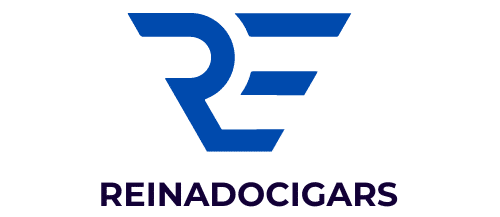How to Develop a Cost-Effective Digital Advertising Campaign for Small Businesses?

In this digital age, businesses of all sizes can harness the power of online marketing to reach a larger audience and facilitate growth. However, for small businesses operating on tight budgets, it can be a challenge to run effective digital advertising campaigns. Thankfully, with the right strategy, it is possible to develop and execute a cost-effective advertising approach that delivers results. This article focuses on providing small businesses with practical steps to develop a successful digital advertising campaign without breaking the bank.
Understanding Your Audience
Before launching any marketing initiative, the first step is to have a clear understanding of your audience. By knowing who your customers are and what they want, you’ll be better positioned to deliver content that resonates with them.
Cela peut vous intéresser : What Are the Creative Strategies for Small Businesses to Engage with Their Local Communities?
Start by defining your target audience based on demographics, such as age, location, occupation, and income level. Next, explore their online behavior – what platforms do they frequent? When are they most active online?
Beyond demographic data, delve into psychographics. Understand their interests, preferences, values, and pain points. This will help you create content that connects with them on an emotional level.
Lire également : What Are the Best Practices for Small Businesses to Secure Funding in a Competitive Environment?
Small businesses can use a variety of tools to gather this data. Google Analytics, social media insights, and customer surveys are all effective means of understanding your audience.
Remember, the more specific you can be about your target audience, the more effective your digital advertising campaigns will be.
Tailoring Your Content Strategy
With a solid understanding of your audience, it’s time to tailor your content strategy to their needs and interests. Content isn’t limited to blog posts or articles – it encompasses everything from social media posts to videos, infographics, and more.
When creating content, consider the unique characteristics and preferences of your audience. What type of content do they enjoy? What format works best for them? For some audiences, video content might resonate more, while for others, detailed blog posts may be more effective.
But it’s not just about the type and format of the content; it’s also about the message. Your content should tell a story, provide value, and engage your audience.
Remember, consistency is key in content marketing. Your brand’s voice and messaging should be consistent across all platforms and content types. This helps to build brand recognition and trust with your audience.
Leveraging Social Media Platforms
Social media is a powerful tool for small businesses to reach and engage their audience. It offers a cost-effective platform to share content, interact with customers, and build a loyal community.
To leverage social media effectively, you must understand which platforms your audience uses most. Facebook, Instagram, Twitter, LinkedIn, and YouTube are all popular platforms, each with its unique audience and content types.
Once you’ve identified the right platforms, it’s time to create and share engaging content. Regularly posting valuable content will keep your audience engaged and increase your brand’s visibility.
In addition to organic posts, consider using social media ads. They are relatively inexpensive and can reach a larger, more targeted audience. By utilizing the detailed targeting features of these platforms, you can ensure your ads reach the right people.
Optimizing for SEO
SEO, or Search Engine Optimization, is a crucial aspect of any digital advertising campaign. By optimizing your content and website for search engines, you can increase your visibility online and attract more organic traffic.
Start by conducting keyword research to understand what terms your audience is searching for. Incorporating these keywords into your content can improve your rankings in search engine results.
Additionally, ensure your website is user-friendly and mobile-optimized. A slow, clunky website can turn away potential customers and negatively impact your SEO.
While SEO can be complex, there are many resources available online to help you understand and implement it. Even small improvements can yield significant results.
Tracking and Analyzing Results
Finally, to ensure your digital advertising campaign is effective, you must track and analyze your results. This allows you to understand what’s working, what’s not, and where you can improve.
Use Google Analytics or other analytics platforms to monitor key metrics, such as website traffic, bounce rate, and conversion rate. Similarly, use social media analytics to track engagement and reach on your posts and ads.
By regularly reviewing and analyzing your data, you can make informed decisions about your digital advertising strategy. And by continually refining and optimizing your campaign, you can achieve the best results possible.
All in all, developing a cost-effective digital advertising campaign for small businesses involves understanding your audience, tailoring your content, leveraging social media, optimizing for SEO, and tracking your results. With careful planning and execution, even businesses with limited budgets can achieve success in the digital world.
Integrating Email Marketing and Influencer Marketing
Email marketing and influencer marketing are two effective strategies that a small business can use to amplify their digital advertising efforts. When used together, they can yield excellent returns at a low cost.
Email marketing is a method of connecting directly with potential customers. By creating an email list, you can keep your target audience updated with your latest products services, news, and promotions. There are several cost-effective tools like MailChimp and Sendinblue that can help you design professional-looking emails and manage your campaigns.
To start with email marketing, encourage your website visitors to subscribe to your email list. This can be done by offering a discount or freebies in exchange for their email address. Make sure you are consistent with your email campaigns, sending regular updates without spamming your subscribers.
On the other hand, influencer marketing involves partnering with social media personalities who have a large and engaged following. These influencers can endorse your product service, increasing your brand awareness and credibility.
When selecting an influencer, choose someone who aligns with your brand values and resonates with your target audience. This ensures their followers are likely to be interested in your products or services. Always negotiate the terms of the partnership and set clear expectations to avoid misunderstandings.
Influencer marketing can be economical as some influencers are open to collaborations in exchange for products or services. Additionally, micro-influencers, though they have a smaller follower count, often have higher engagement rates and may charge less for partnerships.
Perfecting Your Google Business Profile
If you are a small business, having a well-optimized Google Business Profile is a must. It is a free tool from Google that allows businesses to manage their online presence across the search engine and its associated platforms. When optimized correctly, your Google Business Profile can make your business stand out in local searches and on Google Maps.
Ensure that your business details like name, address, and contact information are accurate and up-to-date. Add high-quality photos of your business and encourage customers to leave reviews. Positive reviews not only enhance your online reputation, but Google also tends to favor businesses with good reviews in search results.
Additionally, utilize the posts feature in Google Business Profile. Regularly post updates about your business, products, special offers, or events. These posts will appear in your Google Business Profile and can help to engage potential customers.
Remember to reply to all the reviews and messages you receive through your Google Business Profile. Engaging with your audience this way not only improves your relationship with customers but also signals to Google that your business is active, potentially improving your search visibility.
Conclusion
In conclusion, setting up a cost-effective digital advertising campaign for a small business may seem daunting but with the right approach, it can be done successfully. It starts with understanding your target audience and their preferences, tailoring your content strategy to meet their needs, leveraging social media platforms, and optimizing your efforts for SEO. Coupling these strategies with effective email marketing, influencer marketing, and a well-maintained Google Business profile can significantly enhance your digital presence.
Remember, digital marketing is not a one-time effort but an ongoing process of testing, analyzing results, and making improvements. As you continue to refine your strategies and learn more about your audience, you’ll find your marketing efforts becoming more effective and efficient.
In this digital age, even small businesses can compete with larger ones by adopting savvy marketing strategies. So, gear up and get ready to take your small business to new heights with an effective and cost-efficient digital advertising campaign!
